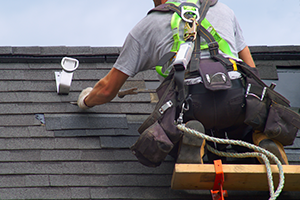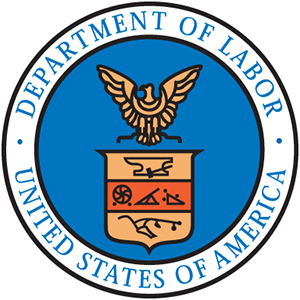Federal lawsuit alleges wage theft by subcontractors

|
On Dec. 1, 2020, two laborers filed a federal class-action lawsuit against a Richmond, Va., drywall company and two Chesterfield County, Va., labor brokers for alleged unfair labor practices on almost three dozen major construction projects in Virginia, according to the Richmond Times-Dispatch.
The lawsuit alleges Capital Interior Contractors Inc. used GTO Drywall Inc. and RDIC Inc. to supply laborers they treated as independent contractors instead of employees entitled to wage protections and benefits.
The lawsuit states: “Worker misclassification is a form of wage theft and payroll abuse where workers that should be classified as employees are illegally classified as independent contractors. By misclassifying workers, employers deny employees their lawful wages (including premiums) and benefits while simultaneously underfunding social insurance programs like Social Security, [Medicare], unemployment insurance and workers’ compensation.”
Two law firms filed the suit on behalf of Gilberto Rosales, one of 60 laborers allegedly affected by the practices on the new General Assembly Building project in Richmond, and Hector Jose Polanco-Alvarez, as well as “similarly situated” workers in other projects named in the suit.
The lawsuit alleges Capital Interior employs GTO Drywall and RDIC, among other labor brokers, to supply workers for the projects, but the subcontractor “maintains many of the traditional functions of employment relationship with these workers, including setting the workers’ schedules, providing the workers with direct and indirect work-site supervision, setting and influencing workers’ rates of pay, and maintaining, as a practical matter, the power to fire or demote workers.”
The suit also alleges violations of overtime pay requirements in the federal Fair Labor Standards Act and state law against misclassification of workers as independent contractors. It seeks unpaid wages and damages for Rosales, Polanco-Alvarez and the other laborers under federal and state law, as well as employment and other benefits denied them because of alleged misclassification. It also seeks an injunction against the companies from “further violations of these laws.”
Pennsylvania governor vetoes COVID-19 liability bill

|
On Nov. 30, 2020, Gov. Tom Wolf (D-Pa.) vetoed a controversial bill aimed at extending broad protections to nursing homes, hospitals and other Pennsylvania businesses from certain lawsuits regarding alleged COVID-19 exposure, according to law360.com.
House Bill 1737 passed out of the General Assembly by narrow margins earlier in November. Wolf said the bill went too far in shielding businesses from claims regarding their response to the pandemic and created a potential safety risk.
“This legislation provides broad, overreaching immunity from civil liability during the current pandemic,” Wolf said in a statement. “Shielding entities from liability in such a broad fashion as provided under this bill invites the potential for carelessness and a disregard for public safety.”
House Bill 1737 would have prevented a broad range of businesses from facing civil liability for “actual or alleged exposure to COVID-19” when good faith efforts were taken to comply with public health guidelines. As written, the bill would have extended protections to nursing homes, hospitals and other health care facilities, child care centers and schools, and other businesses allowed to continue operating through the state of emergency Wolf has declared as a result of the pandemic.
Wolf issued an executive order in May 2020 shielding individual doctors, nurses and other providers from claims related to their treatment of COVID-19 patients, but he faced criticism from business and industry groups for failing to extend similar protections to health care facilities, nursing homes and other entities. Wolf expanded on that order in November, agreeing to extend liability protections to businesses, including restaurant owners and employees, related to their enforcement of the state’s mask mandate.
So far, a handful of lawsuits have been filed in Pennsylvania regarding allegations related to COVID-19 exposure, including two cases brought against a Pittsburgh-area nursing home.
Fall protection remains OSHA’s most-cited violation
Danger from falls at construction sites remains the most frequently cited hazard on the Occupational Safety and Health Administration’s list of most-cited violations for fiscal year 2020, which ended Sept. 30. Construction blog constructionjunkie.com shares a list of OSHA’s top 10 construction-specific violations.
Other rules related to construction falls are among the top 10 violations, including scaffolding, ladders and training.
OSHA generally requires construction workers exposed to falls of 6 feet or more to wear protective gear, such as harnesses, or be protected by guardrails and trained regarding how to avoid falling.
Following are the top 10 most-cited violations in construction for fiscal year 2020:
- Fall protection—general requirements: 4,134 violations
- Scaffolding: 1,714 violations
- Ladders: 1,575 violations
- Fall protection—training requirements: 1,231 violations
- Personal protective and lifesaving equipment—eye and face protection: 1,096 violations
- General safety and health provisions: 632 violations
- Head protection: 578 violations
- Specific excavation requirements: 525 violations
- Aerial lifts: 448 violations
- Fall-protection systems criteria and practices: 429 violations
Judge halts release of Wisconsin employers’ COVID-19 information
In early December 2020, a judge issued a temporary injunction preventing Wisconsin from releasing the names of more than 1,000 employers with potential COVID-19 outbreaks, according to constructiondive.com. The lawsuit, brought by Wisconsin Manufacturers & Commerce and other business groups, had the support of construction organizations such as Associated Builders and Contractors and the Associated General Contractors of Wisconsin.
According to Wisconsin Manufacturers & Commerce, Democratic Gov. Tony Evers’ administration was set to release the names of employers that had at least two cases of COVID-19—regardless of where infected individuals were exposed—or that had two or more contact tracing investigations even if no one tested positive.
The business group successfully argued releasing the names would be a violation of state medical privacy laws, which prohibit releasing the names of patients’ employers; revealing employer names would cause Wisconsin Manufacturers & Commerce members and their employees “irreparable harm”; and disclosing such information could undermine the public’s trust in the Wisconsin Department of Health Services and its efforts to stop the spread of COVID-19.
ABC, AGC of Wisconsin and other trade groups submitted an amicus brief in support of the injunction. The trade groups noted many construction company employees wear identifying logos on their clothes or drive vehicles with company insignia, which potentially could link them to contractors on the list and unfairly associate them with COVID-19.
The trade groups also noted the names of employers are protected under the federal Health Insurance Portability and Accountability Act of 1996 as confidential patient demographic information.
Pandemic relief legislation provisions benefit roofing industry

|
On Dec. 27, 2020, Former President Trump signed the Consolidated Appropriations Act, 2021 (H.R. 133) into law. The legislation provides $900 billion to address COVID-19-related issues.
The legislation contains a number of provisions of interest to NRCA members:
- Ensures expenses paid with forgiven Paycheck Protection Program loan funds are fully tax-deductible
- Provides $284 billion for the Paycheck Protection Program, which includes an extension for first-time borrowers and a second draw capability for employers with at least a 25% reduction in revenues
- Makes nonprofit trade associations such as NRCA eligible for Paycheck Protection Program loans
- Extends and modifies the Employee Retention Tax Credit
- Extends tax credits for employers that provide COVID-19-related paid leave benefits
- Extends enhanced unemployment insurance benefits for individuals laid off because of COVID-19 at $300 per week
- Extends the Pandemic Unemployment Assistance Program (for independent contractors) and the Pandemic Emergency Unemployment Compensation Program
A comprehensive summary of the COVID-19 provisions of interest to employers and roofing professionals is available at nrca.net by clicking on the COVID-19 resources link at the top of the home page.
Final rule clarifies independent contractor status

|
The Department of Labor has announced a final rule clarifying the standard for employee versus independent contractor status under the Fair Labor Standards Act, according to dol.gov.
The final rule includes the following clarifications:
- Reaffirms an “economic reality” test to determine whether an individual is in business for himself or herself (independent contractor) or is economically dependent on a potential employer for work (FLSA employee)
- Identifies and explains two “core factors” that are most probative to the question of whether a worker is economically dependent on someone else’s business or is in business for himself or herself: the nature and degree of control over the work and the worker’s opportunity for profit or loss based on initiative and/or investment
- Identifies three other factors that may serve as additional guideposts in the analysis, particularly when the two core factors do not point to the same classification: the amount of skill required for the work; the degree of permanence of the working relationship between the worker and the potential employer; and whether the work is part of an integrated unit of production
- The actual practice of the worker and the potential employer is more relevant than what may be contractually or theoretically possible
- Provides six fact-specific examples applying the factors
The rule will take effect March 8.



